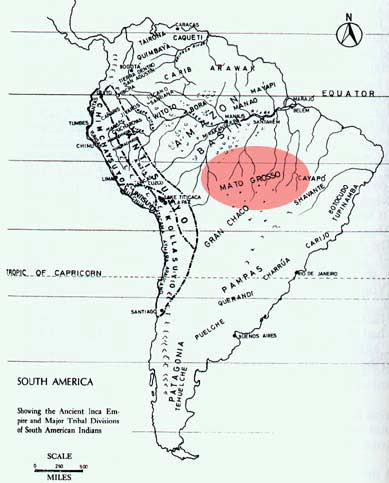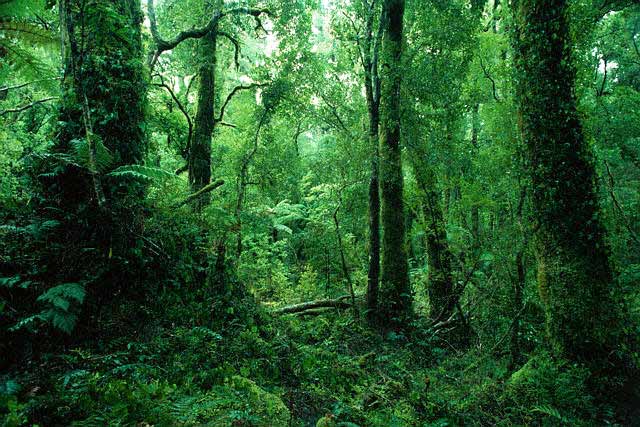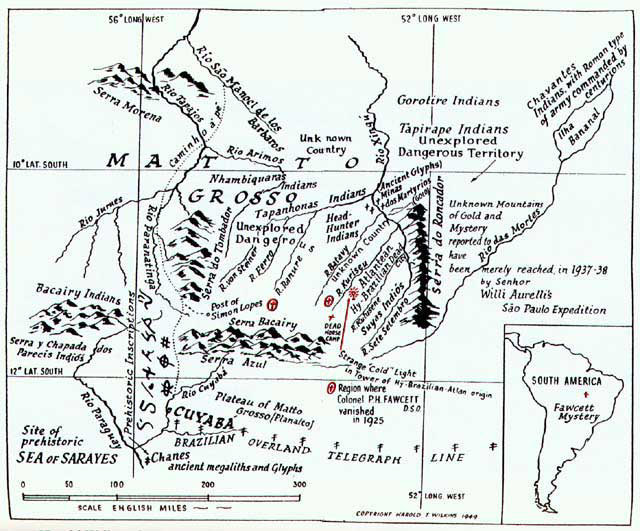
Location
of Matto Grosso region in South America

On May 29, 1925, Colonel Fawcett wrote a letter to his wife,
Nina, from "Dead
Horse Camp"
in the Matto Grosso region (see map). "Dead Horse Camp"
was the same location Fawcett had reached during his 1920 expedition,
which he had to abandon because his horse had died here; hence
the name "Dead Horse Camp."
It should
be noted that "Dead
Horse Camp" was the very last outpost of civilization. From that point on,
only unexplored, dangerous territory awaited him.

Harold
Wilkins 1949 map of lost cities
in the Matto Grosso region of Brazil
CLICK ON "DEAD
HORSE CAMP" ABOVE
In Fawcett's letter to his wife, he said his first objective
was to reach a waterfall in a week or ten days. "You need
have no fear of failure..." he wrote. This letter was sent
back to Cuyaba by an Indian messenger; they were also the last
words Colonel Fawcett wrote. He was never seen or heard from
again, at least officially.
Over the
years that followed, many expeditions to find Colonel Fawcett
ensued, and many more differing accounts, wild speculations and
crazy rumors of his fate were talked and written about. But unfortunately,
Col. Fawcett was never found, nor were any of the testimonial
accounts, stories or rumors ever substantiated.
As the years
passed, hopes of ever finding Colonel Fawcett dead or alive began
to die. But, just when you thought Col. Fawcett and his lost
city would disappear into folklore, his incredible legacy was
revived.
In 1947,
Hugh McCarthy, a New Zealand school teacher, quit his job in
Wellington and traveled to Rio de Janeiro to - you guessed it
- find Fawcett's lost city once and for all!
Hugh McCarthy's
story is perhaps equally, if not more fascinating than Fawcett's
expedition,
including the expeditions that set out to find him! His
documented adventures into the interior jungle of Matto Grosso
are truly incredible. His adventure is next.
Source:
Lost Cities & Ancient Mysteries of South America
by David Hatcher Childress
Image of rainforest purchased from corbis.com